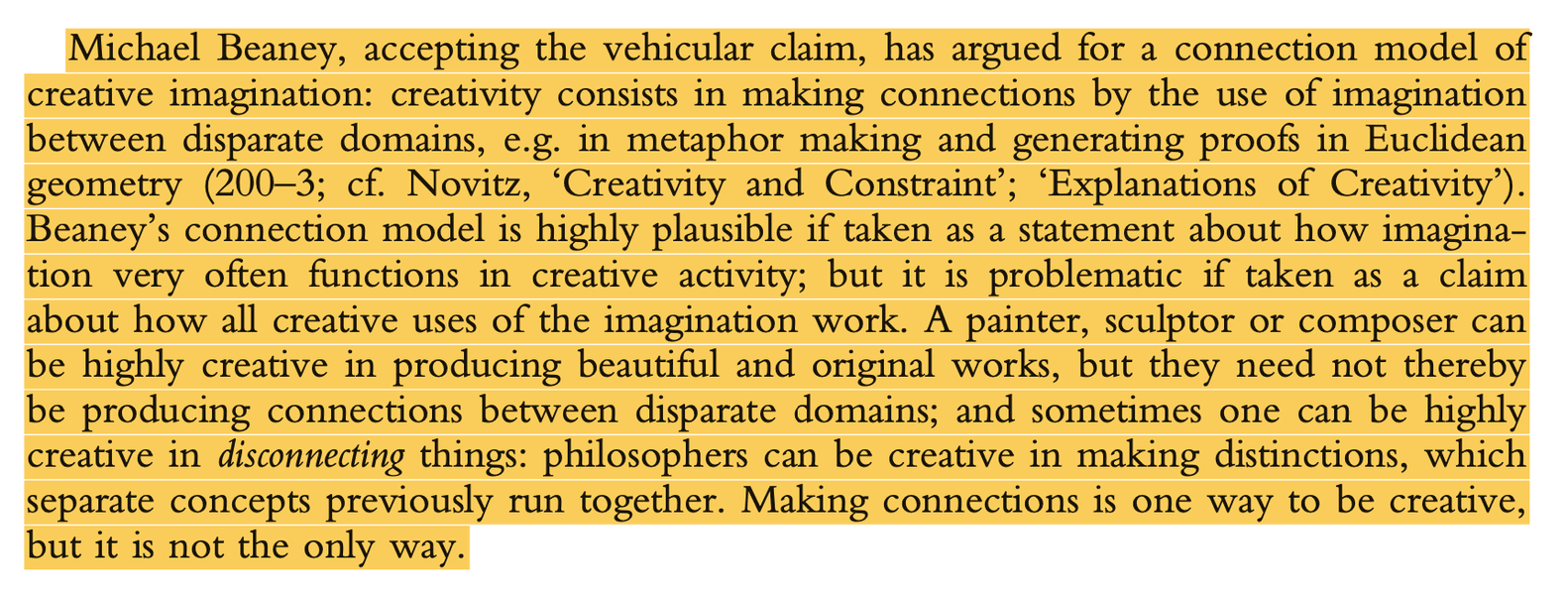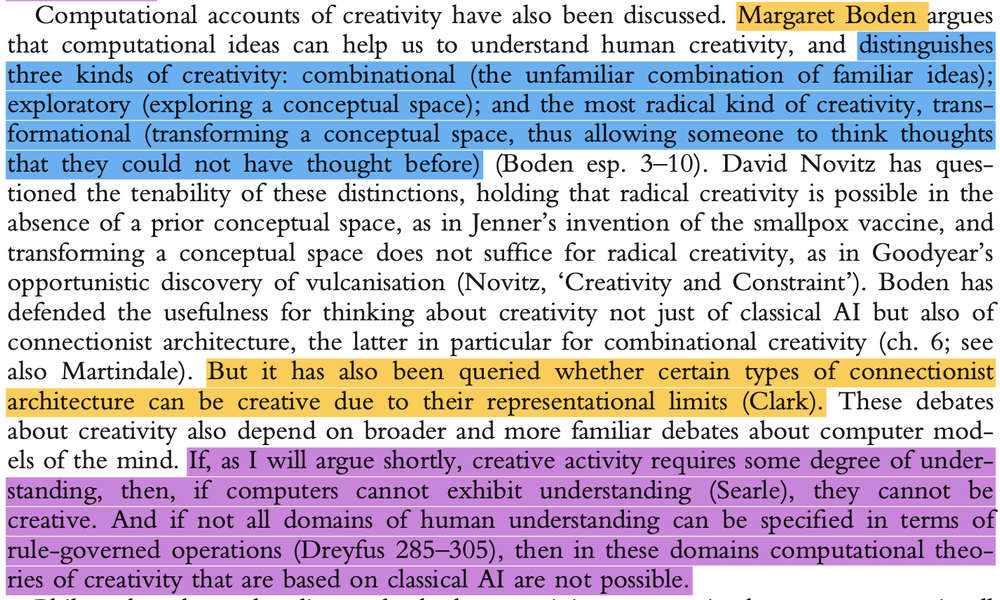Seas of Thought

In short, the kinds of actions that are creative are ones that exhibit at least a relevant purpose (in not being purely accidental), some degree of understanding (not using merely mechanical search procedures), a degree of judgement (in how to apply a rule, if a rule is involved) and an evaluative ability directed to the task at hand. As shorthand
... See more

QC • gwern on Thicket Forte
“by an aesthetic idea, however, I mean that representation of the imagination that occasions much thinking though without it being possible for any determinate thought, i.e., concept, to be adequate to it, which, consequently, no language fully attains or can make intelligible.” (Kant)
Kant’s examples are all drawn from poetry and suggest that by
... See moreBut this approach to teach chain-of-thought doesn’t do that. In this post, they take a small model (7B) that already knows math. Then they give... See more
Emerging reasoning with reinforcement learning | Hacker News
Sam Kriss • Alt Lit | The Point Magazine
One of the most influential introspective reports on creativity was provided by Henri Poincare ´ who described his own experience of creativity in terms of swarms of ideas arising and combining randomly in his unconsciousness and then his selection of the most promising ones according to aesthetic criteria (‘Mathematical Creation’).
Gaut, The
... See more